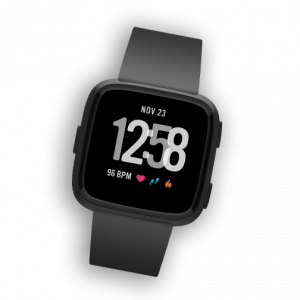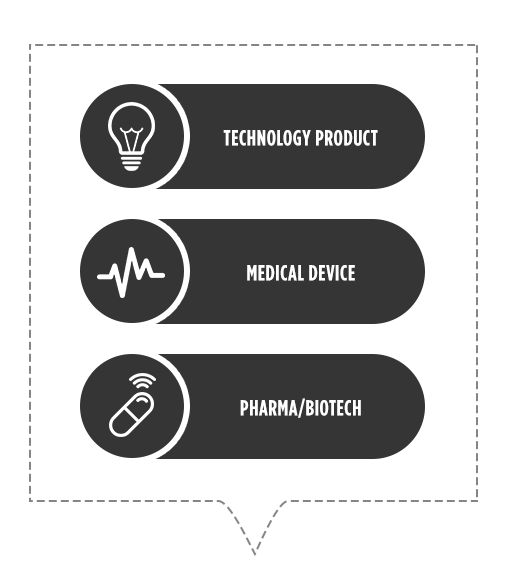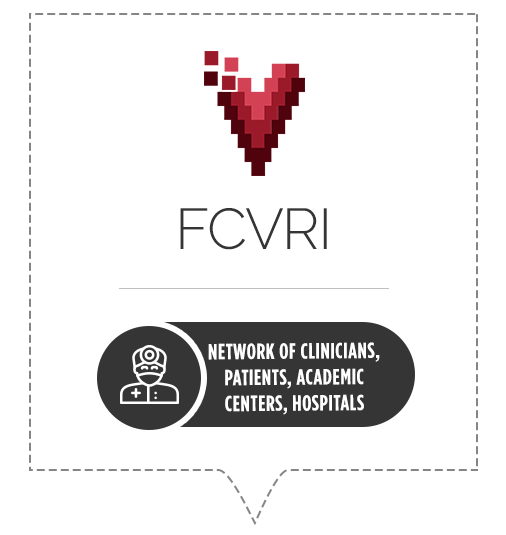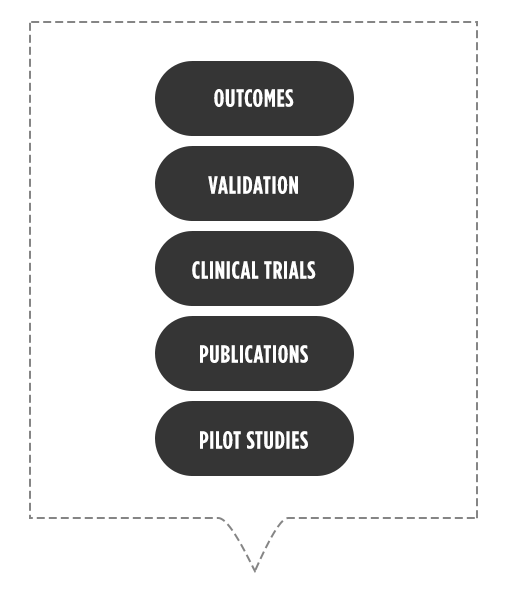WE ADVANCE CARDIOVASCULAR CARE AND
WELLNESS GLOBALLY BY VALIDATING NEW
TECHNOLOGIES, DEVICES & THERAPEUTICS
WE ADVANCE CARDIOVASCULAR CARE AND
WELLNESS GLOBALLY BY VALIDATING NEW
TECHNOLOGIES, DEVICES & THERAPEUTICS


The Foundation for Cardiovascular Research and Innovations (FCVRI) is a 501(c)(3) nonprofit foundation created to validate innovation and technology in cardiovascular care, accelerate scientific progress and advance clinical care.
As practicing cardiologists, clinicians and researchers with decades of experience in managing patients with cardiovascular disease and using innovative medical devices and therapeutics, we launched FCVRI with a two-fold vision:
– To contribute to the development of health innovations; new devices and therapeutics
– To shepherd improved cardiovascular and health outcomes for patients by using validated technologies
Our mission is to advance cardiovascular care and wellness globally by validating new technologies, devices, and therapeutics.To accomplish this mission, FCVRI will continue to engage the clinical and research environment to conduct FDA mandated, sponsor-supported or investigator-initiated clinical trials of new cardiovascular devices and medications while applying our clinical and research expertise to engage with technology companies and academic centers.
FCVRI is headed by a team of cardiologists, research nurses and coordinators, and support staff with decades of medical and research experience in cardiovascular disease. FCVRI provides a network of clinician experts in practices and hospitals, with clinical trial infrastructure and an environment ready to validate new treatments and technologies.

Dr. Chauhan, the Founder and President, is a practicing Interventional Cardiologist with St David’s Heart and Vascular. He completed his fellowship in Cardiovascular Diseases and Interventional Cardiology at Beth Israel Deaconess Medical Center at Harvard Medical School. While on the faculty of the Lahey Clinic in Boston as an interventional cardiologist, he also served as Director of the Interventional Clinical Trials and Technology Program, a staff member at Harvard Clinical Research Institute and Biometrics Department at the Brigham and Women’s Hospital in Boston, MA. He was director of Cardiovascular Specialists of Texas Research for greater than 14 years prior to initiating FCVRI.
Dr. Chauhan is a published researcher with deep knowledge of site clinical management, clinical trial design, database management, safety and monitoring of clinical trials and FDA submission(s).
Dr. Chauhan was awarded the Frist Humanitarian Award by HCA for his service to the community.

Chandrajit Bajaj, Ph.D., is the director of the Center for Computational Visualization, in the Oden Institute for Computational and Engineering Sciences and a Professor of Computer Sciences at the University of Texas at Austin. Bajaj holds the Computational Applied Mathematics Chair in Visualization. He is also an affiliate faculty member of Mathematics, Computational Neuroscience, Bio-medical and Electrical Engineering. He is a Fellow of The American Association for the Advancement of Science (AAAS), Fellow of the Association for Computing Machinery (ACM), Fellow of the Institute of Electrical and Electronic Engineers (IEEE), and Fellow of the Society of Industrial and Applied Mathematics (SIAM). He has won the University of Texas Faculty research award, the Dean Research Assignment award, the Indian Institute of Technology, Delhi, as Distinguished Alumnus Award, and also thrice won the University of Texas, Institute of Computational Engineering and Sciences, Moncreif Grand Challenge research award.
Using his decades of expertise in computational data analysis and visualization, and especially for biomedical imaging sciences and engineering, Dr. Chandrajit Bajaj has developed modern deep learning solutions and tools for predictive analysis from various electronic health records (EHR), mobile devices (ECG) and imaging data (Ultrasound, cardiac MR). These new deep learning AI tools consist of a trained variational autoencoder that permits discriminatory disease classification (e.g. hypertrophic cardiomyopathy, cardiac amyloidosis). The developed deep learning AI tools also permit usage in a generative temporal mode to perform predictions of future events.

Ruth Anne Sullivan is a Certified Clinical Research Coordinator and serves as the lead Clinical Research Coordinator for all studies. She has extensive experience with IRB submission, subject recruitment, study metrics, electronic case report forms, query resolution, SAE/AE reporting requirements, remote and on-site monitoring, FDA regulations, GCP and ICH guidelines, and all other aspects of trial conduction. Ruth Anne began her nursing and research career at M.D. Anderson Cancer Center and Baylor College of Medicine in Houston and has coordinated over 100 research studies in multiple therapeutic areas. In addition to her role at FCVRI, Ruth Anne also serves on the Institutional Biosafety Committee at Advarra IRB.

Deb Cardinal has extensive experience in site operations of clinical trials. Deb’s career began as a critical care nurse before she began conducting clinical trials at Baylor University Medical Center, Dallas and the Mid-America Heart Institute at St. Luke’s Hospital in Kansas City, where she also served on an IRB. She has coordinated over 200 research studies, primarily in the area of cardiology. In addition to her role at FCVRI, Deb serves as a board member and director of Texas Cardiac Arrhythmia Research Foundation.
We have actively participated in several FDA and sponsored clinical trials of new devices and medications, as well as authored numerous publications in peer-reviewed journals. Some examples of multicenter clinical trials conducted in several centers in Boston and Austin including:

Atherectormy device for peripheral artery disease(PAD)

Stent for PAD

Atrial septal occluder device

Anti-arrhythmic medication

Anti-coagulant medication

Stent for PAD

Carotid stent and embolic protection device

Anti-platelet medication

Carotid stent and embolic protection device

Percutaneous ventricular assist device

Anti-platelet medication

With decades of clinical care and research experience and expertise, FCVRI seeks to collaborate with hardware and software technology partners, to evaluate the clinical application of emerging therapeutics such as wearable technology, medical devices, artificial intelligence, mobile applications, telehealth, remote monitoring and others.
Several digital technology tools that are currently being used in our medical practices, include the use of:
With the growing demand and interest to bring technology tools into daily clinical care, FCVRI is committed to developing, testing, evaluating, and validating machine learning (ML) and deep learning (DL) technologies that have the potential to change how healthcare is delivered for optimal health and wellness outcomes.
FCVRI provides a pathway to work with a network of clinician experts in practices and hospitals, with research and clinical trial infrastructure to substantiate digital health and innovation that may require further validation or study.
We are clinicians, researchers and patient/consumer advocates with over 50 years of combined experience. We are committed to advancing trusted health information, technologies, therapies and resources to guide patients and consumers to better health.



